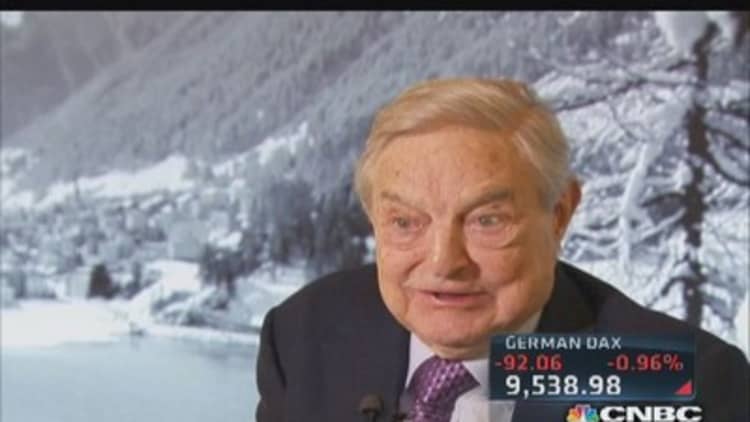George Soros' Quantum Endowment fund has been named the world's most successful hedge fund, after it gained $5.5 billion in 2013, bringing the total gains since inception to $39.6 billion.
Quantum overtook Ray Dalio of Bridgewater Pure Alpha in a study by LCH Investments which ranked the top 20 hedge fund managers by net gains in 2013.
Soros, best known for his bet against sterling in 1992 which made Quantum $1 billion, stepped down from running the fund in 2011. Nonetheless performance has continued to thrive under Chief Investment Officer Scott Bessent while still benefiting from Soros' "continuing oversight," said Rick Sopher, chairman of LCH Investments, in a statement accompanying the report.
(Read more: Finance kings: The bailouts, bonds and bubbles)
Sopher, who is also CEO of Edmond de Rothschild Capital Holdings, put the success of Quantum—and other funds whose chief has left—down to a "culture of money-making that deeply permeates" firms as well as talented managers and continuing oversight or influence of the founder.
In total, hedge fund managers made $192 billion of net gains in 2013, with the top 20 managers making $55.4 billion net of fees for their investors last year.
(Read more: Russia's Putin acting out of weakness: Soros)

Equities offered the best opportunities in 2013, with 70 percent of total gains coming from investments in stock markets, according to the report.
John Paulson, known for his big bets on gold, which hit the performance of his PFR Gold Fund last year, slipped from third to fourth in this year's rankings, gaining $2.6 billion in 2013.
(Read more: $1 billion Soros-backed fund seeks to change the global supply chain)
David Tepper of Appaloosa was ranked fifth, adding $4.2 billion in 2013. While he made $1.6 billion more in net gains than Paulson, since inception he has made $21.2 billion net of fees compared with Paulson's $25.5 billion.
—By CNBC's Jenny Cosgrave: Follow her on Twitter @jenny_cosgrave


